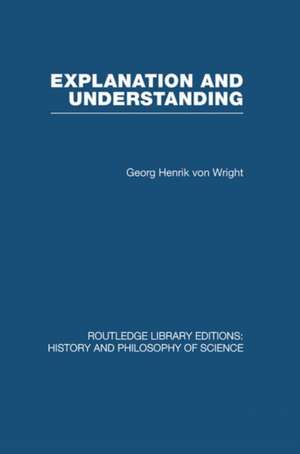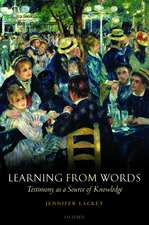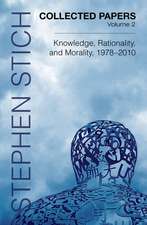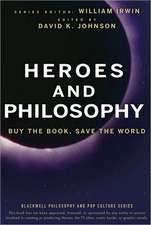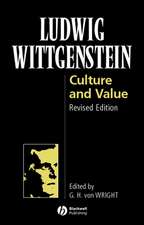Explanation and Understanding: Routledge Library Editions: History & Philosophy of Science
Autor von Wright Georg Henriken Limba Engleză Hardback – 18 aug 2008
Din seria Routledge Library Editions: History & Philosophy of Science
-
 Preț: 241.11 lei
Preț: 241.11 lei - 34%
 Preț: 987.58 lei
Preț: 987.58 lei -
 Preț: 409.48 lei
Preț: 409.48 lei -
 Preț: 190.51 lei
Preț: 190.51 lei -
 Preț: 193.40 lei
Preț: 193.40 lei -
 Preț: 408.54 lei
Preț: 408.54 lei -
 Preț: 481.58 lei
Preț: 481.58 lei - 30%
 Preț: 336.55 lei
Preț: 336.55 lei -
 Preț: 411.42 lei
Preț: 411.42 lei -
 Preț: 410.28 lei
Preț: 410.28 lei -
 Preț: 406.59 lei
Preț: 406.59 lei - 16%
 Preț: 226.72 lei
Preț: 226.72 lei - 34%
 Preț: 1047.71 lei
Preț: 1047.71 lei - 12%
 Preț: 299.52 lei
Preț: 299.52 lei -
 Preț: 215.72 lei
Preț: 215.72 lei -
 Preț: 424.87 lei
Preț: 424.87 lei -
 Preț: 413.33 lei
Preț: 413.33 lei - 34%
 Preț: 1046.46 lei
Preț: 1046.46 lei - 35%
 Preț: 1047.35 lei
Preț: 1047.35 lei - 36%
 Preț: 988.47 lei
Preț: 988.47 lei - 35%
 Preț: 1047.90 lei
Preț: 1047.90 lei - 34%
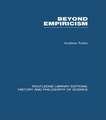 Preț: 1044.84 lei
Preț: 1044.84 lei - 20%
 Preț: 143.04 lei
Preț: 143.04 lei - 24%
 Preț: 337.22 lei
Preț: 337.22 lei -
 Preț: 436.99 lei
Preț: 436.99 lei - 34%
 Preț: 1577.69 lei
Preț: 1577.69 lei -
 Preț: 413.33 lei
Preț: 413.33 lei -
 Preț: 404.68 lei
Preț: 404.68 lei - 36%
 Preț: 1046.09 lei
Preț: 1046.09 lei - 36%
 Preț: 986.45 lei
Preț: 986.45 lei - 34%
 Preț: 1046.82 lei
Preț: 1046.82 lei
Preț: 708.82 lei
Preț vechi: 1069.98 lei
-34% Nou
Puncte Express: 1063
Preț estimativ în valută:
135.64€ • 145.04$ • 113.09£
135.64€ • 145.04$ • 113.09£
Carte tipărită la comandă
Livrare economică 17 aprilie-01 mai
Preluare comenzi: 021 569.72.76
Specificații
ISBN-13: 9780415470216
ISBN-10: 0415470218
Pagini: 252
Dimensiuni: 156 x 234 mm
Greutate: 0.47 kg
Ediția:1
Editura: Taylor & Francis
Colecția Routledge
Seria Routledge Library Editions: History & Philosophy of Science
Locul publicării:Oxford, United Kingdom
ISBN-10: 0415470218
Pagini: 252
Dimensiuni: 156 x 234 mm
Greutate: 0.47 kg
Ediția:1
Editura: Taylor & Francis
Colecția Routledge
Seria Routledge Library Editions: History & Philosophy of Science
Locul publicării:Oxford, United Kingdom
Public țintă
General, Postgraduate, Professional, and UndergraduateCuprins
Preface
I: Two Traditions
II: Causality and Causal Explanation
III: Intentionality and Teleological Explanation
IV: Explanation in History and the Social Sciences
I: Two Traditions
II: Causality and Causal Explanation
III: Intentionality and Teleological Explanation
IV: Explanation in History and the Social Sciences
Notă biografică
Multivolume collection by leading authors in the field
Descriere
This volume distinguishes between two main traditions in the philosophy of science - the aristotelian and the galilean. It then traces the complex history of these competing traditions as they are manifested in such movements as positivism, idealism, Marxism and contemporary linguistic analysis.
